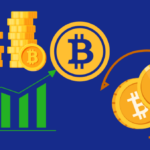Engagement in crypto and forex markets opens up fun opportunities; however, countless traders continue to make several mistakes. Emotional trading, lack of risk management, and several other oversights can turn heavy potential profits into unsustainable losses.
For crypto and forex traders, learning and understanding the mistakes of other traders will simplify the overall long-term process.
Knowing what mistakes to avoid in the most crucial volatility periods will better safeguard your capital, allow more rational and agile decision-making, and help to better manage the overall volatility.
Key Points Table
| Mistake | Key Point Summary |
|---|---|
| Lack of Risk Management | Risking too much capital per trade and not using stop-loss or proper position sizing increases exposure to big losses. |
| Emotional Trading | Fear and greed influence decisions, leading to revenge trades and poor judgment after losses. |
| Overleveraging | High leverage magnifies both profits and losses, making accounts vulnerable to quick liquidation. |
| Ignoring Market Trends | Going against the trend instead of following momentum often results in premature and repeated losses. |
| Poor Trading Discipline | Traders abandon their plan and enter/exit trades impulsively without strategy consistency. |
| Lack of Education & Research | Relying on hype or signals without proper analysis leads to low-quality trade decisions. |
| No Trading Journal | Not tracking trades prevents performance evaluation and improvement over time. |
| Holding Losing Positions Too Long | Hoping price will recover causes deeper losses instead of cutting losses early. |
| Ignoring Economic & News Events | Missing major announcements exposes traders to unexpected volatility and market shocks. |
| Unrealistic Profit Expectations | Expecting fast riches creates risky behavior and emotional burnout. |
1️⃣ Lack of Risk Management
For long-term success in trading, there should be some risk management in place. Anticipating winning trades confidently does not mean one should skip the part of determining the size of the loss one can take in a losing trade.

The common mistakes traders make in both crypto and forex markets involve not using a trading plan, setting appropriate risk: reward ratios, and poor risk management, in general. Professional traders undergo great lengths to protect their profits.
The 1-2% risk-per-trade rule and other similar strategies eliminate the risk of loss during abrupt and unpredictable shifts in the market.
Lack of Risk Management — Key Features
- No defined stop-loss or exit strategy
- Risking a large portion of capital on single trades
- Poor position sizing without calculating exposure
- Focus on profit targets instead of protecting capital
2️⃣ Emotional Trading
Losses can happen when your trading decisions are made from an emotional standpoint. Many traders engage in revenge trading after a loss in an attempt to reclaim their initial stake. On the contrary, winning traders turn greedy, overextending winning positions until they lose.

Common Mistakes Traders Make in Both Crypto and Forex Markets shows the dysfunctional relationship traders have with their emotions in the context of losing discipline and planning. Emotional traders make impulsive decisions, entering positions when they have not confirmed the trading signal then losing it to fear.
Psychological consistency is of utmost importance—emotional traders gain discipline through a prescribed trading plan and lose it through impulsive decisions. Emotion control is what separates the professionals from those who are not.
Emotional Trading — Key Features
- Decisions influenced by fear or greed
- Revenge trading after losses
- Closing trades early due to panic
- Ignoring trading plans during market stress
3️⃣ Overleveraging
Traders are able to control large positions with relatively small amounts of capital. However, losses are also increased. New traders are lured into overleveraging due to the margins which are offered by brokers and the potential profits.

Mistake describes the scenario: traders overleveraging due to lack of knowledge of the liquidation risks. An account can be drained by small adverse movements in the market. This can be avoided by traders practicing using lower amounts of leverage, pre-trade risk assessments, and maintaining sufficient margin.
The primary focus of trading in a safe manner should be the account balance in the long run, not overleveraging. This style of trading exposes the entire balance to constant risk.
Overleveraging — Key Features
- Using high leverage without understanding liquidation risk
- Small price movements create major account drawdowns
- Higher stress and emotional decision-making
- False confidence in quick-profit opportunities
4️⃣ Ignoring Market Trends
Market conditions can manifest as uptrends, downtrends, or sideways movements, and trends will consist of phases. Traders who lose track of these trends and trade against the prevailing momentum tend to incur losses.
Some General Fallacies Made by Traders in the Forex and Crypto Markets include the shorting of positions in strong uptrends and purchasing in aggressive downtrends.

Trend-following plans and strategies help mitigate risks as they correspond the trade’s direction to the market’s strength. Identifying trend direction can be done through moving averages, price action, and support/resistance, all of which provide reliable entry opportunities.
Wise individuals will always wait for confirmation rather than predict trend changes. Fighting trends will almost always lead to losses, both emotionally and financially more so than respecting the market direction that have been identified.
Ignoring Market Trends — Key Features
- Trading against momentum instead of following direction
- Overuse of reversal strategies without confirmation
- Failure to identify major support or resistance zones
- Lack of trend indicators or analysis tools
5️⃣ Lack of Trading Discipline
Having a trading plan gives your approach a degree of consistency, but a lot of traders do not succeed simply because they do not stick to their own plan. They take trades when there is no setup and they close trades when there is the slightest hint of a doubt.

Common Mistakes Traders Make in Both Crypto and Forex Markets shows that the impact of a lack of discipline is far greater than a faulty strategy. The successful trader limits impulsiveness by sticking to their planned entry, stop-loss, and take-profit levels.
They avoid emotional trading and over-trading, no matter the market’s noise. Patience, and a long-term mindset deliver discipline as does confidence in your analysis. Without discipline, even the most profitable strategies will become unprofitable and cause significant losses.
Poor Trading Discipline — Key Features
- Inconsistent application of strategy
- Impulsive entries and exits without signals
- Boredom or Psychologically Fuelled Overtrading
- Breaking Preplanned Risk-Reward Frameworks
6️⃣ Absence of Education & Research Having
Having a beginner mindset for trading is fine, however, over-relying on social media for trading cues is misplaced. Social media traders are not starting from comprehensive market structural analysis, and are ignoring the critical underpinnings of the market.
Traders who are bullish on the crypto and forex markets are often entering positions on hearsay, succumbing to hype, and openly letting themselves fall into the manipulation of social media traders.

None of the self-claimed market gurus perform proper research, and rightly so as there are no indicators that monitor hype and scam crypto assets.
The primary goal of research should be to highlight positions and scams, and to be confident in the research a trader performs to reduce and control the risks involved while improving the overall accuracy and assertiveness in positions.
No Education & Research — Key Characteristics
- Blindly following hype, gossip, and social media influencers
- Absence of technical or fundamental analysis proficiency
- Market engagement without prior study of asset behavior
- Failing to account for crucial factors such as liquidity and volatility
7️⃣ No Trading Journal
A trading journal reflects on entries, exits, results, and even feelings. Throw one away and it’s easy to keep repeating mistakes. Common Mistakes Traders Make in Both Crypto and Forex Markets focuses on the mistakes traders make and points out the lack of performance review and the oversight of trade history as major problems.

Journals make it easy to identify when patterns of impulsiveness, poor timing, or incorrect strategies are employed. It also identifies what works and the trader’s strengths. Professionals and serious traders treat trading as a business, documenting and accounting for every move they make.
Experience in and of itself does not guarantee improvement and not documenting results is a major reason traders fail to hit their performance targets.
No Trading Journal — Key Characteristics
- Absence of records regarding wins and mistakes to evaluate
- Trading mistakes from the past repeat
- Failing to recognize personal strengths or weaknesses
- No documented progress for performance improvement
8️⃣ Holding Losing Positions Too Long
Accepting losses is part of trading, and it’s not easy. Many traders hold bad positions too long, and irrationality takes the place of rational thought when they hope the market will reverse. Common Mistakes Traders Make in Both Crypto and Forex Markets argues that waiting too long will substantially increase losses and eliminate risk control.

Markets move based on supply and demand, and they ignore expectations, emotions, and many other factors. Successful traders respect their stop-loss levels and lose their positions early.
They look for new positions to take, and they know that surviving and consistently profitable trading is what long-term capital preservation is all about. The aim isn’t about being right all the time, but it is about sticking to your strategy.
Holding Losing Trades for Too Long — Key Features
- Logical decisions gets substitute by emotional hoping.
- Not following stop-loss and other risk management rules.
- Allowing minor losses to escalate and cause severe account damage.
- Capital trapped in poor trades which leads to opportunity loss.
9️⃣ Neglecting Economic & News Events
Updates on the economy and news announcements greatly influence the pricing of cryptocurrencies and foreign exchange currencies. The release of economic data, interest rate decisions, regulations and the important economic news updates lead to sudden bursts of volatility.

Common Mistakes Traders Make in Both Crypto and Forex Markets are entering positions just before a news release and completely ignoring the macroeconomic effects. Unprepared traders are often caught off guard by slippage and the hitting of stop losses.
Using economic calendars, tracking major announcements of the central banks and changes globally will reduce the risk of being caught in a dangerous position. Evenly poised traders are able to adjust their strategies to conserve their risk. Neglecting news can lead to adverse results and a diminishing of their account.
Ignoring Economic & News Events — Key Characteristics
- Unexpected volatility arises and impacts open positions.
- Overlooking significant global announcements and data releases.
- High-impact news and poor timing of entries.
- Not fully understanding how news and events drive price movement.
10️⃣ Unrealistic Profit Expectations
Expecting daily returns and massive profits is unrealistic as trading is not a rapid way to make money. Newbies to the trading game cannot fathom the risks in the market. Common Mistakes Traders Make in Both Crypto and Forex Markets describes how overtrading, poor leverage, and emotional distress all result from chasing massive profits.

The ability to make a profit is not immediate. It will require patience, the sharpening of trading skills, and the formulation of strong trading plans. Positive returns does not mean the trading position is unbalanced. Professional traders will prioritize risk management over all other objectives.
Recognizing and accepting realistic profit targets will minimize the emotional burden of trading and will allow the trader to concentrate on the formation of their trading strategy. Traders increase their probability of making real money when they treat the market as a skill to be learned over the long term, rather than a game of chance.
Unrealistic Profit Expectations — Key Characteristics
- Expecting swift returns and profits without risk.
- Using high leverage or aggressive strategies to get rich quick.
- Emotional pressure leading to poor decisions.
- Lack of long-term mindset and patience.
Conclusion
Engaging in both the crypto and forex markets can be very rewarding but requires considerable knowledge, discipline, and control over one’s risks. Capital can be lost quickly due to emotional decision-making, overleveraging, and ignoring prevailing market trends.
Remarkably, one of the first steps to improvement is the ability to identify the mistakes most traders make. These include the absence of risk management and emotional decision-making.
To minimize avoidable loss and achieve long-term profitability, it is critical to remain educated with a sound plan, disciplined execution, and regular reviews of progress.
Protecting capital and making consistent informed moves is what characterizes profitability. Smart trading does not involve trying to forecast every market move.
FAQ
What is the biggest mistake traders make in crypto and forex?
The most damaging mistake is lack of risk management. Without proper stop-loss and position sizing, a single bad trade can wipe out a large portion of capital.
Why is emotional trading harmful?
Emotions like fear and greed cause traders to act impulsively, abandon their strategy, and take unnecessary risks, leading to repeated losses.
How does overleveraging affect traders?
High leverage magnifies losses just as much as profits. Even small price movements can liquidate accounts when leverage is excessive.
Is trend-following important in trading?
Yes. Ignoring market trends is one of the Common Mistakes Traders Make in Both Crypto and Forex Markets because trading against momentum increases the chance of losing trades.
Why should traders keep a trading journal?
A journal helps track performance, identify behavioral patterns, and improve strategy by learning from both successes and failures.









